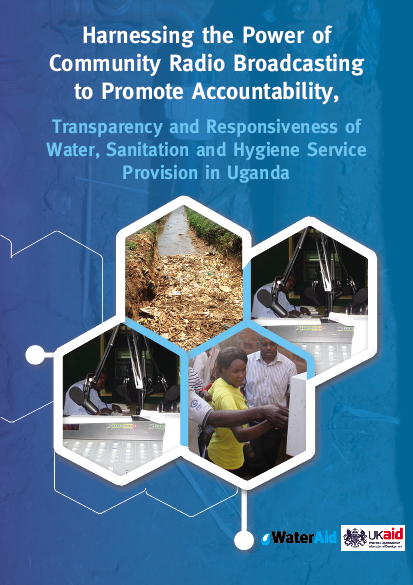
Lack of access to water and sanitation still present a global crisis with over 800 Million and 2.6 billion people having no access to safe water and sanitation respectively majority of which are in Sub-Saharan Africa and Asia1. Major disparities still exist between the rich and the poor towards access to water and sanitation in the developing world2. The poor pay from 5 to 25 times more than the middle and high income households connected to the municipal water system in urban and peri-urban areas3. Further still in urban and peri-urban areas, much as half the water is unaccounted for and lost through illegal connections and excessive leakage4. In urban slum communities, the right of access to water and sanitation services is dependent on the right to land tenure as municipal water supply and sewerage systems stop at the entrance to slum communities5 while in rural communities, to enjoy the right to water means that women and children spend over 10 million hours a year,[which could be used for productive purposes hauling water from distant unsafe streams6 and waterborne diseases kill millions of people each year due to poor governance and accountability in the water and sanitation sector7. While the poor consistently continue to voice their preference to affordable water and sanitation services, both the donor and recipient governments are only weakly responsive to these demands8. Part of the explanation to this inelastic relationship between demands of the poor and responsiveness of the government and other service providers is that the heaviest burden of water and sanitation falls mostly on women, children and the poorest of the poor9. It is also true that the degree to which demands for water and sanitation services is unheard is a function of lack of empowerment those excluded groups have in determining and directing the priorities of the political processes. Other explanations relate to sloppiness in water and sanitation governance and the most pervasive of all is corruption10. The radio therefore offers a offered a unique opportunity for the poor citizens to adequately engage with the policy makers and politicians in improving the quality of WASH services and responsiveness of government
Resource collections
- Accountability to affected populations (AAP)
- Topics
- UN Habitat - Urban Response Collection
- Urban Response - Urban Crisis Preparedness and Risk Reduction
- Urban Response Collection - Community Engagement and Social Cohesion
- Urban Response Collection - Economic Recovery
- Urban Response Collection - Environment and Climate Change
- Urban Response Collection - Housing, Land and Property
- Urban Response Collection - Urban Crisis Response, Recovery and Reconstruction
- Urban Response Collection - Urban Resilience
